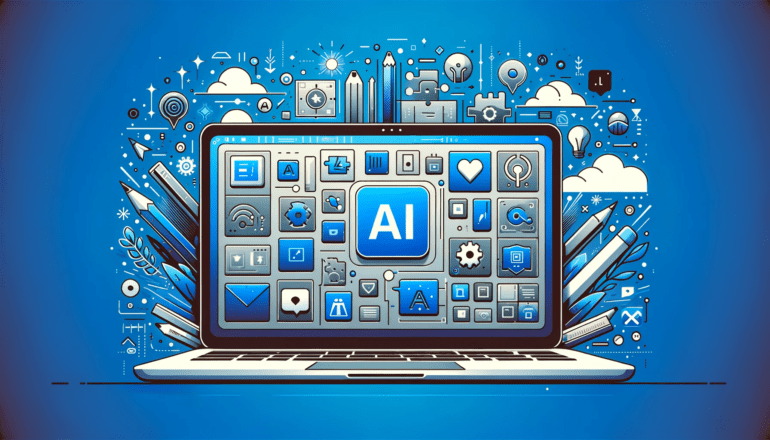TL;DR:
- Workers using AI at work mostly view it as a productivity booster (72%).
- Generational differences in AI adoption: Gen Z and millennials lead, Gen X and baby boomers lag.
- AI is more popular among workers of color, but they have concerns about its impact on their jobs.
- Concerns about job security related to AI exist among 42% of employees.
- The level of concern varies by salary, with lower earners more worried.
- Employees who use AI regularly are more concerned about its job impact (60%).
- The debate on AI as a job killer is ongoing.
- AI may “disassemble” jobs rather than eliminate them, leading to changes in job roles.
- Embracing change and adapting to new skills is crucial for job security.
Main AI News:
As 2023 began, OpenAI’s ChatGPT was in its infancy, and discussions regarding the implications of artificial intelligence (AI) on the workforce were just starting to gain momentum. Today, the conversation has evolved significantly, with generative AI poised to revolutionize the way we work, raising questions about job stability in the process.
In a recent CNBC|SurveyMonkey Workforce Survey, it was revealed that employees who currently utilize AI in their work tend to view it as a positive force, with a remarkable 72% reporting that it has increased their productivity. Notably, Generation Z (37%) and millennials (35%) are at the forefront of AI adoption, while Gen Xers (25%) and baby boomers (17%) lag behind in their use of AI tools such as ChatGPT.
The survey also unveiled that AI’s popularity is especially pronounced among workers of color, with 41% of Asian employees, 38% of Black, and 36% of Hispanic workers having integrated AI software into their roles. In contrast, only 23% of white workers have done the same.
However, alongside the benefits of AI, concerns about its long-term impact on jobs loom large.
The Workforce’s Concerns
Despite the generally positive sentiment surrounding AI, the survey found that 42% of employees harbor concerns about how this technology will affect their job security. Among individual contributors, 44% expressed varying degrees of concern, while managers and higher-ranking employees showed slightly lower levels at 38%.
The outlook on AI’s threat to employment also varies according to salary brackets. Workers earning less than $50,000 per year exhibit higher levels of concern (47%) compared to those making $50,000 to $99,000 (39%) or $100,000 or more annually (36%).
Furthermore, while workers of color are more likely to use AI, the survey highlights that these employees also harbor significant apprehensions about its impact on their jobs. A substantial 53% of Asian and Black workers, along with 46% of Hispanic workers, express concerns, as opposed to 37% of white employees.
This pattern underscores a broader trend: the more employees engage with AI at work, the more pronounced their concerns become. A substantial 60% of regular AI users worry about its impact on their job security, compared to 35% of those who do not use AI in their work.
Reframing the Narrative
The debate surrounding AI as a job disruptor remains unsettled. Some argue that AI will eliminate roles that involve repetitive, mundane tasks, while others, like Elon Musk, predict the vaporization of all jobs.
Amid this uncertainty, there are voices asserting that employees may hold misconceptions about AI. Social scientist and Harvard University professor Arthur C. Brooks, an expert in happiness, suggests that AI is more likely to “disassemble” jobs rather than eliminate them. According to Brooks, AI will unbundle tasks within jobs and reassemble them in a way that differs from current practices.
Brooks contends, “Jobs will change, but they’re not all going away.” Even positions like cashiers, threatened by self-checkout machines, can be reimagined. Human workers bring experience and work ethic, qualities that transcend mere automation.
The Collective Fear of Change
The collective anxiety regarding AI stems from the innate human fear of change. However, humans are inherently adaptable and forward-thinking. Employees face a choice: embrace change as an opportunity for progress or perceive it as disruptive.
Marty Chavez, former Goldman Sachs CFO and CIO, offers three choices for workers in the AI era: become a computer scientist, collaborate with computer scientists to enhance job productivity through technology, or obstruct progress. Chavez asserts that the last option is an unwise career strategy. His experience in introducing algorithmic trading on Wall Street showed that embracing technological advancements opens new avenues for individuals.
Conclusion:
The widespread adoption of AI in the workplace presents a mixed landscape of increased productivity and concerns about job security. While many employees see AI as a positive force, a significant portion remains apprehensive about its long-term effects. Companies must address these concerns by emphasizing the evolution of job roles and the importance of adaptability. In this dynamic market, businesses that facilitate employee skill development and provide reassurance about AI’s role in enhancing, rather than replacing, jobs will be better positioned for success.

